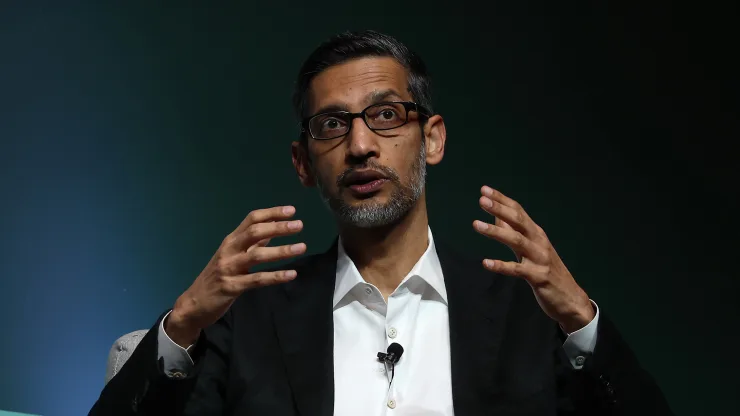
Wiz has walked away from a $23 billion deal to be acquired by Google, in what would have been the search giant’s largest-ever acquisition, telling employees it would pursue an IPO as previously planned.
“Saying no to such humbling offers is tough,” Wiz co-founder Assaf Rappaport wrote in a memo obtained by CNBC to the company’s employees. A person familiar with Wiz’s thinking cited antitrust and investor concerns as part of the reason for abandoning a potential deal.
Rappaport wrote that the company would focus on its next milestones: an initial public offering and $1 billion in annual recurring revenue. The company had been eyeing both targets well before talks with Google had been reported.
The deal would have nearly doubled the $12 billion valuation of the startup from its most recent round of funding. Wiz was founded in 2020 and has grown rapidly under Rappaport, who had been targeting an IPO as recently as May. The company hit $100 million in annual recurring revenue after 18 months, and reached $350 million last year.
Wiz’s cloud security products include prevention, active detection and response, a portfolio that’s appealed to large firms and would have helped Google compete with Microsoft, which also sells security software.
Alphabet’s cloud segment has faced increased competition from frontrunners Microsoft and Amazon. The cloud unit reached profitability in 2023 after years of hefty investment.
While Google Cloud has seen consistent growth in recent years, the unit, led by CEO Thomas Kurian, is under pressure to continue growing in efforts to capture business during the AI boom.
Google didn’t immediately respond to requests for comment.
Exits in technology have been rare this year, between startups waiting for more receptive markets before going public and a challenging regulatory environment for acquisitions.
The collapse of the transaction will be seen as a disappointment by Index Ventures, Insight Partners, Lightspeed Venture Partners, Sequoia and other venture backers that have raised multibillion-dollar funds in recent years.
Funds that run into the billions require exits of over $10 billion in order to generate sizable returns for their limited partners, and those events have been rare, said Brendan Burke, a senior analyst at PitchBook.
Wiz’s founders previously built security startup Adallom, raised money from Sequoia and Index and sold the business to Microsoft for $320 million in 2015. Former Sequoia leader Doug Leone has said investing in Wiz in its earliest days was “a no-brainer.”
Soon after Wiz’s launch came the Covid pandemic. Companies rushed to adopt cloud-based software and infrastructure to help employees work remotely. The shift benefited Wiz, which can flag security issues for applications and data on the Amazon, Google, Microsoft and Oracle public clouds.
Less than a year after its founding, Wiz announced a $100 million funding round.
“I think what was unique with Wiz in the early days was the amount of money raised from the get-go,” Sid Trivedi, an investor at Foundation Capital, told CNBC in an interview.
Google acquired cybersecurity company Mandiant for $5.4 billion in 2022. Google’s largest deal remains the acquisition of hardware maker Motorola in 2012 for $12.5 billion. The company ended up selling assets from that purchase to Lenovo for $2.9 billion in 2014. Google recently ended conversations to acquire sales software maker HubSpot.
In an interview with CNBC’s Sara Eisen and Carl Quintanilla at the New York Stock Exchange last year, Eisen asked Rappaport if he wants to take Wiz public.
“Yeah, definitely,” he said. He laughed. “That’s why we’re here.”





























